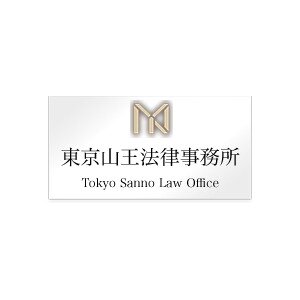Best Investment Lawyers in Minato
Share your needs with us, get contacted by law firms.
Free. Takes 2 min.
List of the best lawyers in Minato, Japan
About Investment Law in Minato, Japan
Investment in Minato, located in Tokyo, Japan, falls under both local and national Japanese law. Known for its global business and foreign embassy districts, Minato attracts many foreign investors looking to tap into the Japanese market. Investment law in Japan broadly regulates matters such as market entry, foreign ownership, compliance with securities regulations, tax, and corporate governance. These laws are designed to create a conducive environment for both local and foreign investors while protecting the interests of all stakeholders involved.
Why You May Need a Lawyer
Investors may require legal assistance in a variety of situations, such as navigating complex investment regulations, establishing a new business venture, complying with local and national securities laws, seeking tax advice, or resolving investment disputes. Lawyers can offer valuable guidance on corporate structure, due diligence, and contractual agreements. They are also critical in ensuring that all investments are made in compliance with Japanese Foreign Exchange and Foreign Trade Act, which includes regulations on transactions that affect national security.
Local Laws Overview
When investing in Minato, it is important to be aware of several local and national legal considerations. The Companies Act oversees company formation and governance, while the Financial Instruments and Exchange Act regulates securities and investment services. For foreign investors, the Japan External Trade Organization (JETRO) offers a comprehensive guide on Japanese investment laws, including restrictions on investments in certain industries. Additionally, Minato may have specific ordinances that complement national laws, particularly when it comes to zoning, land use, and local economic development incentives.
Frequently Asked Questions
1. What types of businesses can foreign investors establish in Minato?
Foreign investors can typically establish a Kabushiki Kaisha (KK) corporation, a Godo Kaisha (GK) limited liability company, or a joint venture with a Japanese partner, among other business types.
2. Are there restrictions on foreign ownership in Japan?
Yes, there are some restrictions on foreign ownership in certain industries, such as agriculture, forestry, fisheries, petroleum, and leather manufacturing.
3. Do I need a local partner to invest in Minato?
A local partner is not legally required but can be beneficial in navigating local business practices and networks.
4. How can I protect my intellectual property as a foreign investor in Japan?
Japan has robust intellectual property laws. Registration with the Japan Patent Office can provide protection for your inventions, designs, and trademarks.
5. Are there tax incentives for foreign investors in Japan?
There may be tax incentives available, depending on the nature and location of the investment. This includes potential reduced tax rates or tax credits for specific business activities.
6. What kind of legal compliance is required for foreign investors?
Legal compliance includes adhering to investment, corporate, labor, tax, and securities laws, as well as any specific regulations pertaining to the business sector.
7. Can foreign investors buy real estate in Minato?
Yes, foreign investors can buy real estate in Minato. However, it is essential to comply with local zoning laws and to consider potential restrictions on land ownership.
8. How do dispute resolutions typically work for investors in Japan?
Investors in Japan can resolve disputes through litigation, arbitration, or mediation. The choice depends on the nature of the dispute and the terms of any applicable contracts.
9. Is it necessary to obtain a visa to invest in Minato?
While owning a business does not require a specific visa, living in Japan to manage the investment typically requires a Business Manager Visa or Investor/Business Manager Resident Status.
10. Where can I find market information and statistics for investing in Minato?
Market information and statistics can be obtained from JETRO, the Tokyo Metropolitan Government, and various industry associations.
Additional Resources
To assist in your investment journey in Minato, government bodies such as the Japan External Trade Organization (JETRO), the Tokyo Chamber of Commerce and Industry, and the Minato City Office provide invaluable resources. These institutions offer aid from administrative guidance to networking opportunities with local businesses.
Next Steps
If you seek legal assistance related to investment in Minato, the next steps would be to engage with a reputable law firm that specializes in Japanese investment law. Preparing a clear outline of your business plan, understanding the market, and having a list of questions ready for your legal advisor will streamline the process. For personalized advice, it is imperative to consult with a lawyer who has experience in assisting foreign investors in Japan. They will have the expertise to navigate the complexities of Japanese law and provide you with legal support tailored to your investment needs.
Lawzana helps you find the best lawyers and law firms in Minato through a curated and pre-screened list of qualified legal professionals. Our platform offers rankings and detailed profiles of attorneys and law firms, allowing you to compare based on practice areas, including Investment, experience, and client feedback.
Each profile includes a description of the firm's areas of practice, client reviews, team members and partners, year of establishment, spoken languages, office locations, contact information, social media presence, and any published articles or resources. Most firms on our platform speak English and are experienced in both local and international legal matters.
Get a quote from top-rated law firms in Minato, Japan — quickly, securely, and without unnecessary hassle.
Disclaimer:
The information provided on this page is for general informational purposes only and does not constitute legal advice. While we strive to ensure the accuracy and relevance of the content, legal information may change over time, and interpretations of the law can vary. You should always consult with a qualified legal professional for advice specific to your situation.
We disclaim all liability for actions taken or not taken based on the content of this page. If you believe any information is incorrect or outdated, please contact us, and we will review and update it where appropriate.









